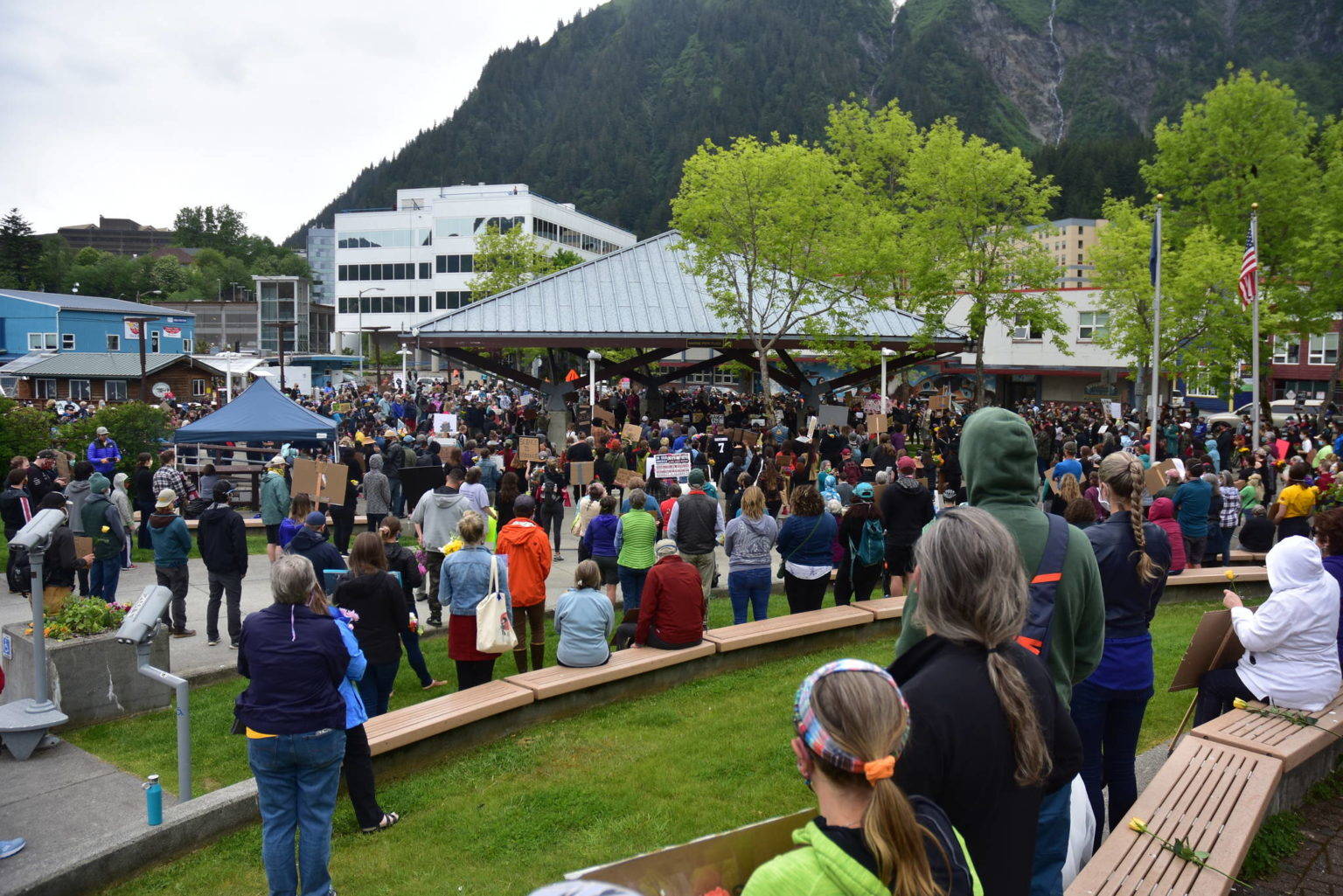The City and Borough of Juneau Assembly Monday voted to move ahead with the creation of a systemic racism review committee.
The Assembly put the item on the Committee of the Whole’s agenda for a Monday, Aug. 24 meeting, where it will receive a public hearing.
The proposal to create a committee followed calls from the community to review city policies for instances of racism, both subtle and overt, amid a larger, national anti-racist movement galvanized by the death of George Floyd, a Black man who died in police custody in Minneapolis.
The ordinance creating the committee went through a round of amendments since the last time it was before the committee on July 26, Assembly member Rob Edwardson said. The ordinance was introduced and largely written by Edwardson with the help of the city attorney. At the meeting, Edwardson said some changes requested by other Assembly members or the public had been incorporated into the ordinance, but there was “no material change.”
The revised ordinance provided a definition of systemic racism that was fairly broad, Edwardson said, giving the committee wide latitude to identify instances of racism.
[Assembly considers Racism Review Committee]
“There is somewhat of a definition of systemic racism, but it’s not so finely etched in there that it would exclude certain other definitions,” Edwardson said. “It allows the committee a lot of leeway to interpret systemic racism using a number of different examples or definitions.”
The only change made to the ordinance Monday was an amendment for a review of the committee after one year.
Some Assembly members expressed concern about the workload the committee was likely to create for already over-burdened city staff and suggested appropriating funds for additional staffing. The ordinance creating the committee currently appropriates no money, but it can be amended at the next meeting.
The Assembly was trying something new, Assembly member Michelle Bonnet Hale said, and it is unclear what exactly the outcomes the committee could lead to.
“We know this committee is not going to solve the problem (of systemic racism),” she said. “It takes a lot of community engagement to do that. From what I understand from Mr. Edwardson is this will help shine a light on racism in ways that we perhaps don’t see.”
However once the committee was formed, the Assembly could change what the committee does. The city’s sustainability committee had charted new territory as well, Deputy Mayor Maria Gladziszewski said. She recalled, as a member of that body, members repeatedly consulting the group’s charging document to try to forge the committee into what the document stated. Committee members eventually came to the Assembly with requests for changes, and the same could happen with the systemic racism committee, she said.
The next step would be choosing who would serve on the board. Edwardson said he wanted to cast a wide net in terms of who could serve on the board, but wanted people with experience in identifying instances of racism, covert and overt, but also unintentional.
“Nowadays as societies evolved (from the overt racism of the ‘50s and ‘60s) it tends to be more covert and is often more a byproduct of not necessarily thinking things through,” he said.
• Contact reporter Peter Segall at psegall@juneauempire.com. Follow him on Twitter at @SegallJnoEmpire.

